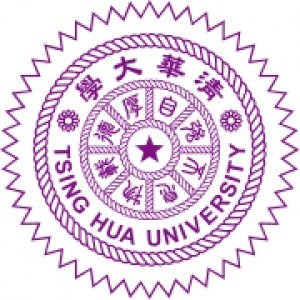Photos of university
Electrical Engineering at National Tsing Hua University offers a comprehensive curriculum designed to develop experts capable of innovating and leading in the fields of electronics, electromagnetics, control systems, power systems, and communication technologies. The program emphasizes a strong foundation in fundamental sciences such as physics and mathematics, integrated with advanced engineering principles to prepare students for both research and industry careers. Throughout the course of study, students engage in rigorous coursework covering circuit analysis, digital and analog electronics, signal processing, electromagnetic theory, microprocessors, and automation systems. The curriculum also provides extensive laboratory experience, fostering practical skills essential for designing, testing, and implementing complex electrical systems.
Students have opportunities to participate in cutting-edge research projects, often collaborating with faculty members who are leaders in their fields. The program aims to cultivate innovative thinking, problem-solving abilities, and technical proficiency, ensuring graduates can address real-world challenges in areas like renewable energy, smart grids, robotics, telecommunications, and semiconductor technology. Advanced elective courses enable students to tailor their education to specific interests, complemented by optional internships and industry partnerships that facilitate hands-on learning and professional development. The Department of Electrical Engineering encourages multidisciplinary approaches, integrating elements from computer science, materials science, and environmental engineering.
Graduates of this program are well-prepared to pursue careers in high-tech industries, government agencies, research institutions, or to continue their academic pursuits through master's and doctoral programs. The program's rigorous academic standards and emphasis on innovation aim to produce versatile professionals who can contribute to technological advancements and societal development. With state-of-the-art laboratories, modern facilities, and a vibrant academic community, students receive comprehensive training in both theoretical knowledge and applied skills necessary to excel in the rapidly evolving electrical engineering landscape.
- Analysis and Design of Microwave Circuits
- Microelectronic Engineering
- Device Electronics for I.C.
- Physics of Nanoscale CMOS Devices
- High Speed Semiconductor Devices
- Micro Electro Mechanical Systems (MEMS) Design
- Semiconductor Physics
- Semiconductor Microwave Devices
- Semiconductor Power Devices
- Semiconductor Memories
- Semiconductor Lasers
- An application form online application
- A photocopy of diploma in English and Chinese
- Applicants for bachelor degree programs must provide a photocopy of their high school diploma.
Applicants for master degree programs must provide a photocopy of their bachelor degree diploma.
Applicants for doctoral degree programs must provide a photocopy of their master degree diploma. - Official transcripts in English or Chinese
- Proof of English and Chinese proficiency. (PBT 550, CBT 213, iBT 79) or IELTS (5.5)
- A letter of intent to the Department, including faculty member contact as prospective advisor.
- Technical Report
- Autobiography in English
- A study plan
Please provide a concise study plan with a maximum of three pages. In the study plan, applicants are encouraged to describe their motivation for choosing NTHU, and for choosing the specific department or program that they are applying. For graduate students, potential contribution to the department and research interests may also be included. - Two recommendation letters
Letters of recommendation are preferably from faculty members capable of evaluating the applicant’s academic qualifications and research potential. - Financial certificate
All applicants are required to provide a financial statement issued by a financial institution showing their financial sustainability (minimum US$ 4,000) for study in Taiwan, or a certificate of scholarship. If the submitted financial statement is not under the name of the applicant, then the applicant’s sponsor(s) must provide an affidavit indicating their relationship to the applicant and their intent to provide financial support throughout his/her period of study. - Declaration form
Print out the declaration form and sign at the bottom after reading it thoroughly. If applicable, we may ask the applicant to submit a copy of statement of travel record, or their Forfeited Nationality Permit Certificate issued by Ministry of the Interior and Non-Household Registration Declaration. - Verification of nationality
Applicants must provide a copy of their passport or some other acceptable verification of their nationality.
NTHU International Student Scholarship
● Doctoral. students: NT$ 10,000 per month
● Master Students: NT$ 5,000 per month
● Bachelor students: NT$ 5,000 per month
● tuition waived
Taiwan Scholarship
Ministry of Foreign Affairs
● NT$ 30,000 per month (no tuition waiver)
Ministry of Science and Technology
● NT$ 30,000 per month (no tuition waiver)
Ministry of Education
● Doctoral students: NT$ 20,000 per month
● Master's students: NT$ 20,000 per month
● Bachelor students: NT$ 15,000 per month
(tuition waived)
Additional Costs:
- Student Insurance Fee TWD 138 (per semester)
- National Health Insurance Fee TWD 749 (per month)
- Internet User Fee TWD 1,000 (per semester)
- Admitted undergraduate and graduate students may obtain a room shared with 1, 2 or 4 students. The dormitory expense is about TWD 16,170 to 27,800 for a single room, TWD10,170 to 16,600 for a 2-bed room and TWD 6,370 to 9,250 for a 4-bed room per semester.








